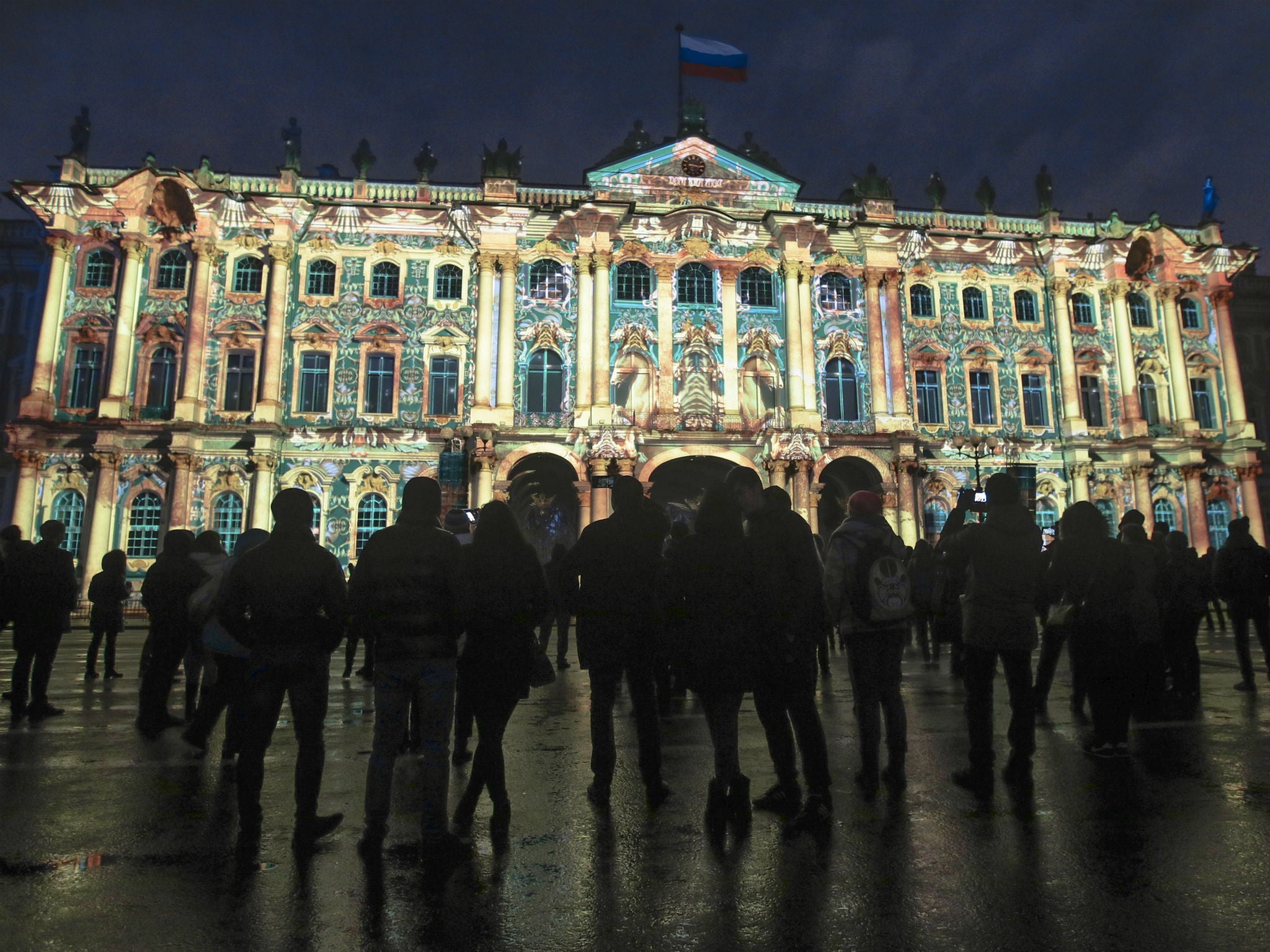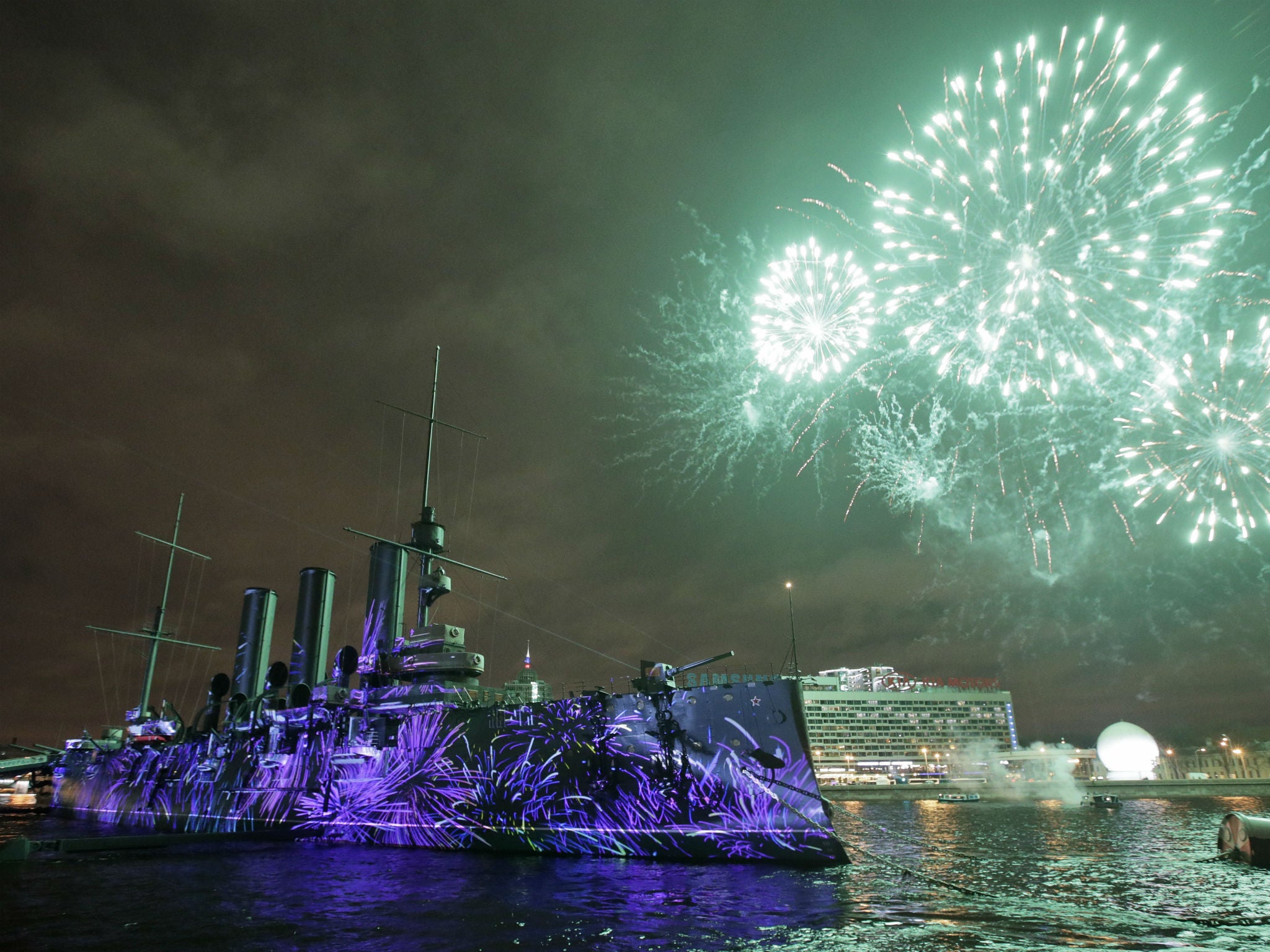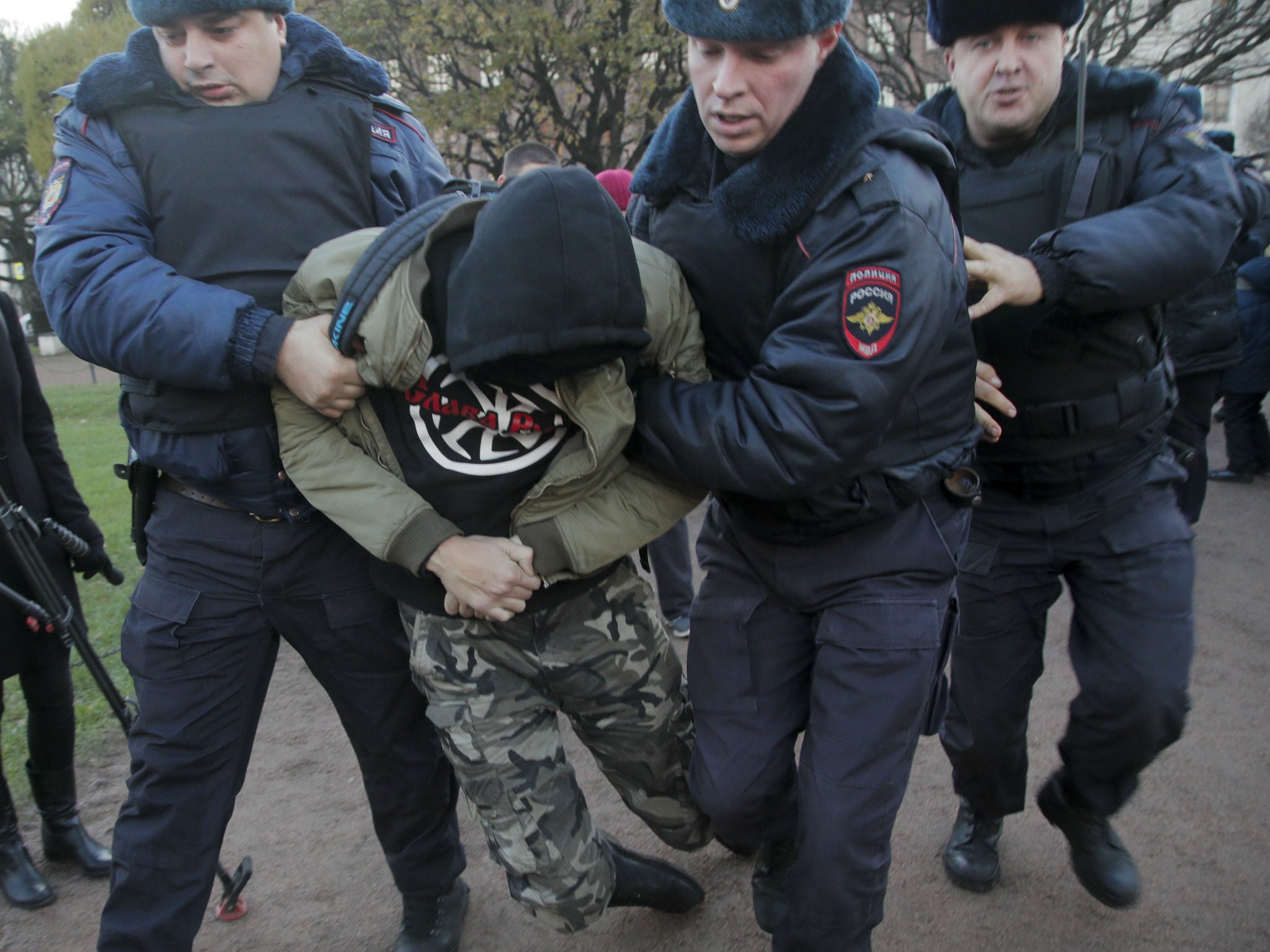Russian Revolution at 100: Why the centenary means little to modern day Russia’s leaders – and its people
St Petersburg and Moscow are holding a number of commemorations – while there have been hundreds of arrests over protests – but for a large amount of the populace, the revolution is too far removed from their daily lives

Your support helps us to tell the story
From reproductive rights to climate change to Big Tech, The Independent is on the ground when the story is developing. Whether it's investigating the financials of Elon Musk's pro-Trump PAC or producing our latest documentary, 'The A Word', which shines a light on the American women fighting for reproductive rights, we know how important it is to parse out the facts from the messaging.
At such a critical moment in US history, we need reporters on the ground. Your donation allows us to keep sending journalists to speak to both sides of the story.
The Independent is trusted by Americans across the entire political spectrum. And unlike many other quality news outlets, we choose not to lock Americans out of our reporting and analysis with paywalls. We believe quality journalism should be available to everyone, paid for by those who can afford it.
Your support makes all the difference.“The main operations began at 2am,” wrote Leon Trotsky in his History of the Russian Revolution. “Bolshevik groups occupied the rail stations, the lighting station, military and food warehouses, the water systems, the Palace bridge, the telephone exchange, state bank, major printing houses, telegraph and post office.”
With that – though few realised it at the time – one of history’s most consequential turns had taken place. The events of that frosty night 100 years ago would go on to split Russia into red and white, violent and pacifist, poor and rich, old and new. They served as the precursor to terror of unimaginable scale, to technological advances, to Cold War and to no less stunning collapse.
A century on, the world is still discussing the consequences of the Bolshevik Revolution. But in Russia no one seems the least bit interested.
On 7 November, Russian state TV is expected to repeat the news blackout it observed on the anniversary of the February Revolution. Unusually for an administration so used to orchestrating history, there has been no mandated line, no diktat, no good revolution, or no bad revolution. The Kremlin has stated that for the government, the event does not exist – “though revolution, in general, is probably a bad thing”.
The Russian Communist Party almost seems to agree. Gennady Zyuganov, the party’s crusty leader, 73, and at its helm since 1993, has in major speeches skipped all but basic pleasantries about Vladimir Lenin. His focus has been on the Second World War, Yuri Gagarin and technological breakthroughs of the later Soviet period. The 1917 revolution was a “state-building” exercise, he has inventively argued.
Now very much part of the capitalist state, the Communist Party has scheduled a series of budget-bursting rituals in St Petersburg. But the main event will be a closed party in Moscow on 7 November. Held in an upmarket business hotel, those leftists hoping for a communist Renaissance, complete with five – presumably red – stars, will not be left disappointed.
“This is a Soviet festival for the Soviet elite,” says Ilya Budraitskis, a leading left-wing commentator. “The leaders will be celebrating it exactly as befits members of the neo-nomenklatura.”
Mikhail Zygar, editor of the documentary web-project “1917” detailing the revolution and author of the forthcoming book The Empire Must Die, says the total lack of media interest in Russia has surprised him.
It was as if the revolution happened not in Russia, but America. “On the anniversary of the February Revolution, my phone didn’t stop ringing with requests for interviews with English-language media,“ he says. ”There was not a single call from the Russian media.”

On an obvious level, there is no desire within the Kremlin to encourage thoughts of armed uprising. With Russia’s radical fringes promising a week of Molotov cocktails and insurrection, the security services are on full alert. Approximately 400 arrests were made over the weekend. Many were supporters of the exiled nationalist anarchist politician Vycheslav Maltsev.
But all that seems to be a secondary concern. The Kremlin is not scared of revolution, says Mr Zygar, for “they are scared of nothing”. Instead, it appears the authorities have decided there is no propaganda gain to be had from the events of 1917.
Put simply, says the author, the Bolshevik Revolution does not fit into the empire narrative being pushed by the Kremlin. Mr Putin’s new empire isn’t quite Soviet, and it isn’t quite the empire of Tsar Nicholas II: “It has bits of everything thrown in it; the Second World War, Crimea, a bit of Stalin here, a bit of Orthodoxy there.”
Crucially, this imagined empire has become a matter of national pride, and is the President’s “main guarantee against protest”.

In his official comments, President Vladimir Putin has encouraged the “open study” of what he has called the “common past”. Last week, he opened a new bronze memorial wall in commemoration of the victims of political repressions. There, he made an unusually forthright condemnation of the crimes of Soviet Russia.
“We cannot erase the terrifying past from our history,” he said. “But nor is there anything we can do to justify it; certainly not in the name of so-called higher national purpose.”
For Russian liberal commentators, little irony was lost. They noted the incongruity of the President’s comments with his history in the country’s security services. After all, neither the KGB nor its successors have fully condemned or disassociated themselves from Soviet terror.
But Putin is not alone in processing history illogically, says the cultural historian Boris Belenkin.
“Every Russian is a child of the Soviet revolution – whether they’ve lost family to the terror, or their family were the ones doing the terror, or both,” he says. “Russians can’t fit this reality into their heads, and so they have turned off the parts of history they find difficult.”
In a recent opinion poll, carried out by the Russian Academy of Sciences, almost one-third of respondents were unable to say what they thought about the revolution.
A century on, one might even sympathise. Culturally, economically, politically, the Russia of 2017 has little in common with the Russia of 1917.
That previous imperial Russia has been lost to everyone but historians, says Mr Zygar: “It’s our sunken Atlantis, with as much a relation to contemporary Russia as the Mayas do to contemporary Mexico.”
But there are parallels, he says. One hundred years on, Russian psychologies and the underlying conflict are essentially the same: “It’s the same picture of government, which is in conflict with the educated part of the population, which it does not trust, and the educated part of the population, which truly hates the government.”
And that, adds Mr Zygar, is no longer, a purely Russian construct.
“Maybe that why there has been much interest from America,” he says.
Join our commenting forum
Join thought-provoking conversations, follow other Independent readers and see their replies
Comments